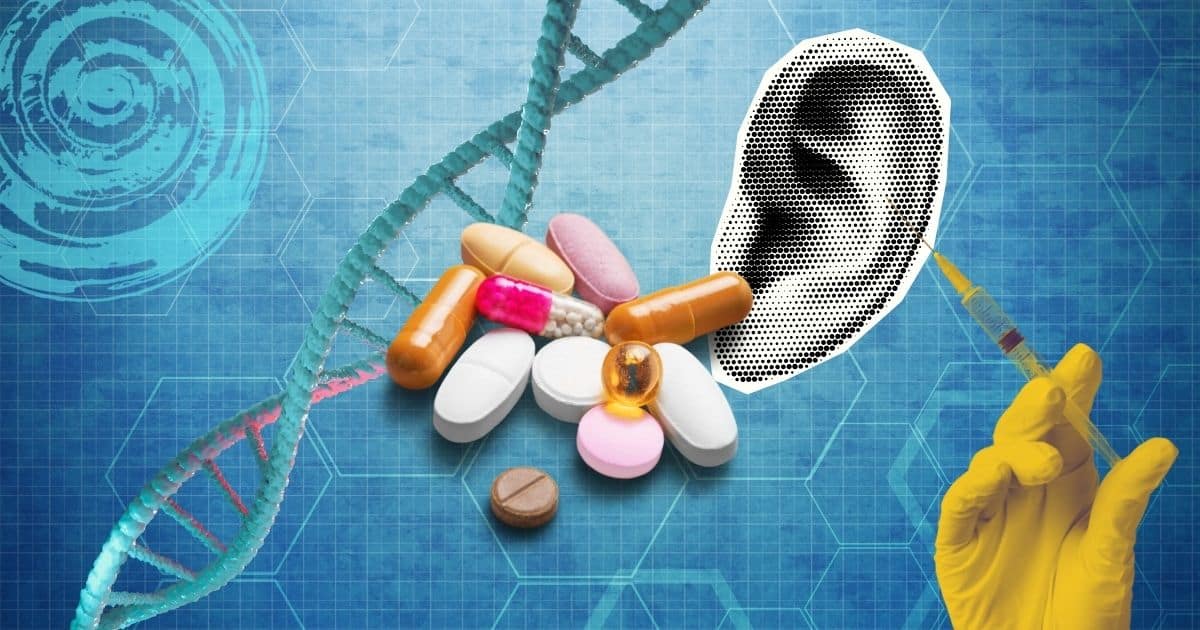In a not-so-distant past, the concept of advances in medical technology that exist today were deemed virtually impossible. The evolutions of science and technology has ventured beyond the boundaries of our imagination, turning once-unthinkable possibilities into tangible realities. For every obstacle faced, it seems that twice as many new opportunities have emerged.
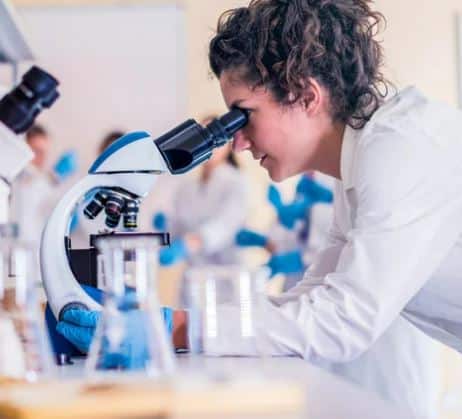 Yet, amidst this remarkable progress and the ongoing pursuit to conquer human challenges, one formidable adversary still persists on a global scale – hearing loss. While hearing aids have offered significant relief and have improved dramatically in recent years, they still fall short of fully restoring lost hearing capabilities. As we witness medical advancements continue to combat the physical signs of aging, the call to address hearing loss becomes more urgent.
Yet, amidst this remarkable progress and the ongoing pursuit to conquer human challenges, one formidable adversary still persists on a global scale – hearing loss. While hearing aids have offered significant relief and have improved dramatically in recent years, they still fall short of fully restoring lost hearing capabilities. As we witness medical advancements continue to combat the physical signs of aging, the call to address hearing loss becomes more urgent.
Enter the dedicated scientists who have poured decades of research into investigating the perplexities of hearing loss reversal.
Investing in Hearing Restoration
Over the last decade, we’ve observed the rise of several companies utilizing diverse methods and approaches, all sharing a common objective: the restoration of hearing.
As progress unfolds, innovative medical solutions are emerging, particularly in the biotechnology sector. These companies are actively developing novel therapies not only to prevent or repair inner-ear damage but also to potentially restore normal hearing. While the aging process naturally impacts various faculties, including hearing, in our contemporary, noise-filled world, hearing loss transcends age boundaries, affecting both the young and the old.
While a multitude of emerging companies is tirelessly devoted to the cause of hearing restoration and related disorders, our focus now turns to some of the prominent organizations that have come to our attention over the past several years:
 Drug and Pharmaceutical Approach:
Drug and Pharmaceutical Approach:
- Fennec Pharmaceuticals
- Sound Pharmaceuticals
- Spiral Therapeutics
- AudioCure
- Autifony Therapeutics
- Acousia Therapeutics
Gene and Cell Therapy Approach:
- Sensorion
- Lineage Cell Therapeutics
- Eli Lilly (formerly Akouos)
- Regeneron (formerly Decibel Therapeutics)
- Rinri Therapeutics
- Myrtelle
Fennec Pharmaceuticals
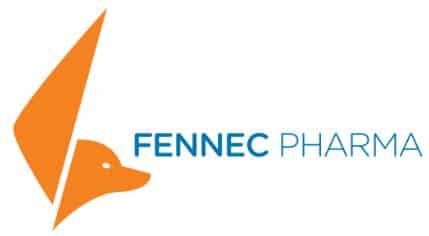 Fennec Pharmaceuticals Inc., a specialty pharmaceutical company, achieved a significant milestone with the development and FDA approval of PEDMARK® (sodium thiosulfate injection).
Fennec Pharmaceuticals Inc., a specialty pharmaceutical company, achieved a significant milestone with the development and FDA approval of PEDMARK® (sodium thiosulfate injection).
PEDMARK® is a groundbreaking therapy specifically indicated to reduce the risk of ototoxicity associated with cisplatin use in pediatric patients with localized, non-metastatic solid tumors.
Cisplatin, a vital chemotherapy drug for pediatric cancers, frequently leads to permanent hearing loss, termed ototoxicity. This condition significantly impacts pediatric cancer survivors, affecting their speech, language, social-emotional development, and academic success.
PEDMARK® represents a unique formulation of sodium thiosulfate in single-dose vials for intravenous use, demonstrating efficacy and safety across two Phase 3 clinical studies—COG ACCL0431 and SIOPEL 6. These studies focused on pediatric cancers typically treated with intensive cisplatin therapy, including hepatoblastoma, germ cell tumors, osteosarcoma, neuroblastoma, medulloblastoma, and other solid tumors.
Annually, more than 10,000 children in the U.S. and Europe may receive platinum-based chemotherapy, exposing them to the risk of ototoxicity. PEDMARK® emerges as a critical preventive agent for this hearing loss, addressing a significant unmet medical need in pediatric oncology. Its approval marks a significant advancement in pediatric cancer care, aiming to mitigate the detrimental effects of cisplatin-induced ototoxicity and improve the quality of life for young cancer patients.
Sound Pharmaceuticals
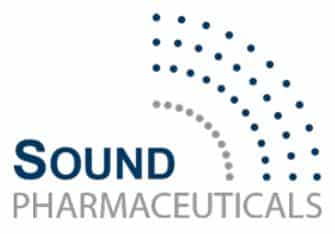 Sound Pharmaceuticals is a company focused on tackling challenging medical issues linked to inner ear problems that affect hearing. Their main goal is to create treatments for these conditions. Using their expertise in molecular biology, immunohistochemistry, and electrophysiology, the company has made models to study hearing loss and ringing in the ears (tinnitus). These models are showing promise in tests done with people.
Sound Pharmaceuticals is a company focused on tackling challenging medical issues linked to inner ear problems that affect hearing. Their main goal is to create treatments for these conditions. Using their expertise in molecular biology, immunohistochemistry, and electrophysiology, the company has made models to study hearing loss and ringing in the ears (tinnitus). These models are showing promise in tests done with people.
The company’s furthest developed indication is for the treatment of Meniere’s Disease. In the first half of 2023, the company announced that it had completed enrollment in its Phase 3 trial with SPI-1005 involving over 220 patients, examining the drug’s impact on hearing loss and tinnitus. While no longer recruiting, the study will monitor patients for three months and may extend to a 12-month safety study.
One of their key developments is a drug called SPI-1005. It’s a form of ebselen that you take as a pill. This medicine is designed to protect the inner ear from damage caused by loud noises that can lead to permanent hearing loss. SPI-1005 works like an antioxidant, reducing harmful substances in the ear that can affect hearing. It does this by acting as a copy of an enzyme called glutathione peroxidase (GPx), which is important for how the ear functions.
Moreover, Sound Pharmaceuticals has created another drug called SPI-3005. This drug is meant to help with hearing loss caused by certain medicines used in cancer treatment and infections. In tests on animals, SPI-3005 has shown it can protect against hearing loss caused by these drugs without stopping the drugs from doing their job.
Spiral Therapeutics
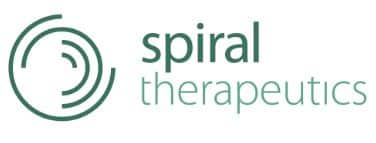 Spiral Therapeutics is a clinical-stage pharmaceutical company dedicated to developing therapies for inner ear disorders, specifically focusing on balance disorders and hearing loss. The company’s flagship program, SPT-2101, a sustained-release steroid formulation for Ménière’s disease treatment, has shown promising results in early clinical trials, displaying significant improvements in patient-reported vertigo episodes and other efficacy measures.
Spiral Therapeutics is a clinical-stage pharmaceutical company dedicated to developing therapies for inner ear disorders, specifically focusing on balance disorders and hearing loss. The company’s flagship program, SPT-2101, a sustained-release steroid formulation for Ménière’s disease treatment, has shown promising results in early clinical trials, displaying significant improvements in patient-reported vertigo episodes and other efficacy measures.
Their innovative, award-winning drug delivery platform MICS™ (minimally-invasive cochlear system) is designed to accurately deliver a variety of drugs to the ear, allowing them to remain in the middle ear for extended periods, spanning from weeks to months. This adaptable system can be customized to administer drugs that have anti-inflammatory, otoprotective, and neuroprotective characteristics, aiming to address balance disorders and hearing loss. Its goal is to precisely administer drugs to the cochlea, tackling existing hurdles associated with delivering drugs to the inner ear.
Spiral Therapeutics is advancing its inner ear programs, with plans to submit an Investigational New Drug (IND) application for SPT-2101 in the United States by 2024, demonstrating a commitment to advancing treatments for inner ear disorders.
**Readers interested to learn more about Spiral can check out this March 2023 interview with company CEO Hugo Peris and Chief Medical officer, Dr. Charles Limb
AudioCure
 AudioCure is a company committed to developing drug therapies for hearing disorders with substantial unmet medical needs. Their main focus involves protecting and restoring crucial cells essential to the hearing process, aiming to address the root cause of these disorders rather than just treating symptoms.
AudioCure is a company committed to developing drug therapies for hearing disorders with substantial unmet medical needs. Their main focus involves protecting and restoring crucial cells essential to the hearing process, aiming to address the root cause of these disorders rather than just treating symptoms.
Their lead therapy candidate, AC102, targets acute hearing loss and acute tinnitus, conditions lacking approved drug treatments. AC102 has shown promising results in preclinical studies, indicating its ability to act on sensory cells and neurons critical to the hearing process.
By potentially becoming the first causative therapy for these conditions, AC102 aims to prevent the progression of long-term, chronic hearing loss
AC102, a novel molecule, works by safeguarding and rejuvenating sensory hair cells and their connections to the auditory nerve. This therapeutic compound has exhibited impressive outcomes in models of hearing disorders, significantly improving hearing recovery and preserving auditory nerve connections. Notably, AC102 has demonstrated better efficacy in restoring hearing function compared to corticosteroid treatment, commonly recommended for sudden hearing loss.
The innovative aspect of AC102 lies in its specialized gel formulation, allowing for targeted drug delivery to the inner ear through intratympanic administration (injection through the eardrum). This method enables the drug to reach the inner ear cells directly without the need for frequent applications, reducing systemic exposure and potentially minimizing adverse side effects.
Autifony Therapuetics
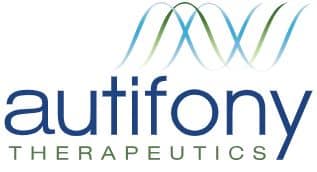 Autifony focuses on developing treatments that target specific ion channels to improve natural hearing in people with permanent sensorineural hearing loss (SNHL). Their main research centers on Kv3 (KCNC) family channels, which help nerve cells work better without changing how long they work for. These channels are crucial for maintaining high-frequency sound processing.
Autifony focuses on developing treatments that target specific ion channels to improve natural hearing in people with permanent sensorineural hearing loss (SNHL). Their main research centers on Kv3 (KCNC) family channels, which help nerve cells work better without changing how long they work for. These channels are crucial for maintaining high-frequency sound processing.
They’re studying different types of these Kv3 channels found in the nervous system, muscles, and specific parts of the brain. Autifony’s research involves special molecules that aim to influence these channels, like the compound AUT1, showing potential for treating various hearing-related conditions by enhancing the function of nerve cells in the auditory system.
Studies have demonstrated the positive effects of these compounds on specific nerve cells in the brain responsible for processing sound information.
Acousia Therapeutics
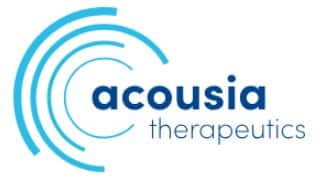 Acousia Therapeutics is a clinical-stage biotech company focused on developing novel drug therapies to prevent and treat acute and chronic forms of hearing loss. Their primary objective is to identify and create small molecule compounds that can preserve and enhance natural hearing, specifically targeting sensorineural hearing loss (SNHL), affecting over 90% of those with hearing impairment.
Acousia Therapeutics is a clinical-stage biotech company focused on developing novel drug therapies to prevent and treat acute and chronic forms of hearing loss. Their primary objective is to identify and create small molecule compounds that can preserve and enhance natural hearing, specifically targeting sensorineural hearing loss (SNHL), affecting over 90% of those with hearing impairment.
Acousia’s unique approach involves the development of small molecule drugs designed to both enhance and preserve a patient’s natural hearing by targeting validated cochlear-based elements.
The company’s leading drug candidate, ACOU085, is undergoing clinical trials for the prevention of cisplatin-induced hearing loss—a significant side effect of cisplatin-based chemotherapy affecting many cancer survivors. Their Phase 2 trial, approved by German regulatory authorities, aims to evaluate the effectiveness of ACOU085 in preventing cisplatin-induced ototoxicity in young male testicular cancer patients. This trial assesses various aspects of hearing, including audiometry, speech comprehension, and otoacoustic emissions. Acousia’s previous Phase 1b trial demonstrated the safety, tolerability, and prolonged local action of ACOU085, highlighting its potential for conditions such as cisplatin-induced hearing loss.
Regeneron Pharmaceuticals
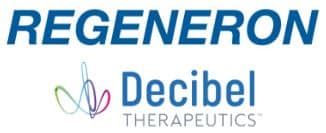 In October 2023, Regeneron Pharmaceuticals, Inc. shared promising results from the Phase 1/2 CHORD trial involving DB-OTO, a gene therapy targeting severe genetic hearing loss caused by otoferlin gene mutations in children under two years old. While cochlear implants are a standard treatment, they fall short in replicating the complete range of sound for these children.
In October 2023, Regeneron Pharmaceuticals, Inc. shared promising results from the Phase 1/2 CHORD trial involving DB-OTO, a gene therapy targeting severe genetic hearing loss caused by otoferlin gene mutations in children under two years old. While cochlear implants are a standard treatment, they fall short in replicating the complete range of sound for these children.
The initial findings of DB-OTO show potential in reactivating auditory circuits, which could lead to improved hearing.
Administered via a single intracochlear injection, the therapy displayed positive auditory responses during follow-up assessments lasting up to six weeks, demonstrating enhanced hearing function safely and without adverse effects.
Congenital hearing loss affects 1.7 out of every 1,000 children in the U.S., with otoferlin gene mutations resulting in inactive auditory circuits.
DB-OTO’s preliminary success suggests a path towards restoring clinically significant hearing, aligning with Regeneron’s commitment to advancing gene therapies for auditory medicine. DB-OTO, initially a product of collaboration with Decibel Therapeutics, became part of Regeneron following their acquisition of Decibel Therapeutics.
This therapy, designed as a durable gene therapy utilizing a non-pathogenic virus, received Orphan Drug and Rare Pediatric Disease designations from regulatory agencies, indicating its potential significance in addressing this critical medical need.
Eli Lilly (formerly Akouos)
 In late 2022, Eli Lilly and Company entered into a definitive agreement to acquire Akouos, Inc, a precision genetic medicine company dedicated to developing gene therapies for inner ear conditions, primarily sensorineural hearing loss.
In late 2022, Eli Lilly and Company entered into a definitive agreement to acquire Akouos, Inc, a precision genetic medicine company dedicated to developing gene therapies for inner ear conditions, primarily sensorineural hearing loss.
The lead therapy candidate, AK-OTOF, focuses on addressing hearing loss caused by mutations in the otoferlin gene (OTOF), with additional programs targeting Usher Type 3A, GJB2-related deafness, and vestibular schwannoma.
In late January 2024, the company reported incredibly promising initial findings from the Phase 1/2 AK-OTOF-101 study, demonstrating restored hearing in the first participant within 30 days of AK-OTOF administration. This breakthrough presented compelling evidence of hearing improvement, with an 11-year-old experiencing restored hearing across tested frequencies, even reaching normal thresholds at some frequencies by Day 30. Notably, the therapy was well tolerated, with no adverse events reported. Prof. John Germiller hailed these results as a significant advancement in gene therapy for hearing loss, underscoring the trial’s collaborative efforts in addressing OTOF-mediated hearing loss.
As the largest pharmaceutical company in the world, Lilly plans to leverage it’s size and expertise to accelerate the development of treatments for people with genetic hearing loss.
Sensorion
 French biotech Sensorion specializes in the development of novel therapies to restore, treat and prevent hearing loss disorders. Sensorion has built a unique R&D technology platform to expand its understanding of the pathophysiology and etiology of inner ear related diseases, enabling it to select the best targets and mechanisms of action for drug candidates.
French biotech Sensorion specializes in the development of novel therapies to restore, treat and prevent hearing loss disorders. Sensorion has built a unique R&D technology platform to expand its understanding of the pathophysiology and etiology of inner ear related diseases, enabling it to select the best targets and mechanisms of action for drug candidates.
Restore Hearing Through Gene Therapy
A major focus for Sensorion is the development of gene therapies to restore hearing in people with certain genetic forms of deafness. The company has two gene therapy programs:
- OTOF-GT aims to restore hearing in those with otoferlin deficiency. This rare condition causing hearing loss from childhood is due to mutations in the OTOF gene. Sensorion’s therapy delivers a normal working copy of the OTOF gene to replace the faulty one.
- GJB2-GT targets GJB2-related hearing loss, one of the most common childhood forms. Mutations in the GJB2 gene lead to loss of the connexin 26 protein vital for hearing. The gene therapy adds a normal GJB2 gene to compensate for the mutant copy.
Both approaches use a modified virus to deliver the gene into the inner ear through an injection. OTOF-GT is furthest along, having started Phase 1/2 human trials in 2022 to test safety. A larger Phase 2 efficacy trial is slated for late 2023. GJB2-GT is at an earlier preclinical stage with first human trials planned in 2024.
Treat Sudden Hearing Loss
Sensorion’s lead drug candidate SENS-401 aims to treat sudden sensorineural hearing loss (SSNHL). This sudden hearing impairment happens in less than 72 hours and can be permanent if untreated. It can also be accompanied by tinnitus and vertigo. SENS-401 protects inner ear cells from damage to try to prevent permanent deafness.
Preventing Hearing Loss in At-Risk Patients
Finally, Sensorion has two preclinical programs for using SENS-401 to prevent hearing loss:
- Cisplatin-induced ototoxicity – Cisplatin chemotherapy frequently causes permanent inner ear damage and hearing loss. SENS-401 may reduce this risk.
- Cochlear implantation – Sensorion has partnered with Cochlear Ltd to test using SENS-401 to prevent hearing loss in patients undergoing cochlear implant surgery. The drug could help preserve remaining natural acoustic hearing in implant recipients.
In summary, Sensorion is leveraging gene therapies, a lead drug candidate, and strategic partnerships to target restoring lost hearing and preventing further loss across a range of inner ear conditions. The company aims to address significant unmet needs through this multifaceted therapeutic approach.
**Readers interested to learn more about Lineage’s work can check out this September 2023 interview with company CEO Nawal Ouzren
Myrtelle Inc.
 Gene therapy company Myrtelle joined forces with Forge Biologics in late 2022 to push ahead with their pioneering hearing loss treatment: Myr-201. This treatment aims to help people with a specific type of hearing loss- autosomal recessive deafness 8 (DFNB8).
Gene therapy company Myrtelle joined forces with Forge Biologics in late 2022 to push ahead with their pioneering hearing loss treatment: Myr-201. This treatment aims to help people with a specific type of hearing loss- autosomal recessive deafness 8 (DFNB8).
Myr-201 is designed to send a special gene called TMPRSS3 directly into the inner ear using a method referred to as low-dose recombinant adeno-associated virus (rAAV) gene therapy. Forge Biologics, known for its work in gene therapy, will provide important manufacturing services for Myrtelle’s program at its special gene therapy facility in Columbus, Ohio.
This collaboration is a big move forward for Myrtelle as they work on changing how gene therapy helps people with DFNB8-related hearing loss.
Their treatment involves putting the gene therapy straight into the inner ear, aiming to avoid possible problems that can come with using a lot of gene therapy throughout the body. Tests in animals have shown promising results, suggesting that Myr-201 might help protect important ear cells and improve hearing in mice with DFNB8-related deafness.
Myrtelle’s main goal is to quickly move into Phase 1/2 clinical trials, hoping to offer this new therapy to people dealing with DFNB8-related hearing problems.
 Rinri Therapeutics, established in 2018, specializes in pioneering regenerative cell therapies for those affected by hearing loss. The company’s primary focus is on treating auditory neuron-related hearing loss, such as age-related hearing loss and Auditory Neuropathy.
Rinri Therapeutics, established in 2018, specializes in pioneering regenerative cell therapies for those affected by hearing loss. The company’s primary focus is on treating auditory neuron-related hearing loss, such as age-related hearing loss and Auditory Neuropathy.
Using cutting-edge science originating from Professor Marcelo Rivolta’s groundbreaking work in sensory stem cell biology, Rinri aims to develop effective treatments that target sensory replacement.
Their innovative approach involves deriving auditory sensory cells from renewable human progenitors, focusing on restoring function by developing functional auditory neurons. Preclinical studies have shown promising outcomes, including survival and maturity of auditory neuron progenitors when delivered to the cochlea, resulting in an improvement of hearing threshold by approximately 40% in auditory neuropathy models.
Furthermore, Rinri has made significant progress in refining the manufacturing process of these cells to meet the required standards for initiating clinical trials in humans. The company has also overcome challenges related to accessing the cochlea, a pivotal area for hearing loss treatment, by developing a safe surgical route validated through collaborative efforts with experts in the field.
Rinri is currently preparing for its first human clinical trials involving Rincell-1, aiming to administer it to adults experiencing severe-to-profound age-related hearing loss or Auditory Neuropathy eligible for cochlear implants under UK NICE guidance (TA566). These trials represent a significant step forward in exploring the potential of regenerative cell therapy as a treatment for various forms of hearing loss.
Lineage Cell Therapeutics
 Lineage Cell Therapeutics is at the forefront of developing innovative treatments for hearing loss by utilizing cell therapy. Their approach involves growing specialized cells (auditory neurons) in labs using a method known as allogeneic cell therapy.
Lineage Cell Therapeutics is at the forefront of developing innovative treatments for hearing loss by utilizing cell therapy. Their approach involves growing specialized cells (auditory neurons) in labs using a method known as allogeneic cell therapy.
These cells can be transplanted into a patient’s inner ear to replace damaged or lost auditory nerve cells.
The company’s goal is to address hearing loss caused by issues with nerve fibers that connect the ear’s hair cells to the brain. Instead of focusing solely on amplifying sound signals like hearing aids or cochlear implants, Lineage aims to restore hearing by regenerating these damaged connections using new auditory neurons.
Drawing from their success in replacing retinal cells for macular degeneration with OpRegen, Lineage aims to apply a similar strategy to hearing loss.
They have already achieved initial success in testing these auditory neurons in animal models, partnering with the University of Michigan to understand the optimal placement and survival of these cells. This data will guide future human trials.
The company has moved rapidly from concept to animal testing, leveraging their existing expertise, and anticipates at least two more years of preclinical work before considering human studies. Lineage’s unique approach could potentially revolutionize hearing loss treatments, offering long-lasting repairs that current methods cannot achieve.
**Readers interested to learn more about Lineage’s work can check out this May 2023 interview with company CEO Brian Culley
Conclusion
The ongoing research efforts aimed at restoring hearing highlight the profound impact of hearing loss globally. While some of these innovative solutions have shown promise in trials, there remains much to learn during their implementation.
It’s important to recognize the significance of timely interventions for hearing loss, considering the advancements made by hearing aids and cochlear implants in managing this condition. These developments pave an exciting path for the future of hearing healthcare.
The pace of these developments is rapidly accelerating, underscoring the need to stay informed about the latest trends in this field. Of course, it’s equally vital to seek the guidance of your trusted hearing healthcare practitioner for expert insights on the path forward.
Che-hears to better hearing!
About the Author
 Nausheen Dawood is an experienced Audiologist and Project Manager with a professional background including primary health care, corporate social investment, and business development. Proficient in the development of academic courses, training, and lecturing, with a focus on clinical student training and supervision. Adept in freelance copywriting, particularly in audiology and health-related topics. Holds a Masters degree in Audiology (Cum Laude), with a strong foundation in clinical research, project development, and strategic planning, complemented by technical training. Specializes in content development and training tailored to diverse audiences. Demonstrates a long-term commitment to research and development, including the implementation of randomized controlled trials, projects, and clinical examinations. Known for establishing robust networks and cultivating valuable stakeholder relationships.
Nausheen Dawood is an experienced Audiologist and Project Manager with a professional background including primary health care, corporate social investment, and business development. Proficient in the development of academic courses, training, and lecturing, with a focus on clinical student training and supervision. Adept in freelance copywriting, particularly in audiology and health-related topics. Holds a Masters degree in Audiology (Cum Laude), with a strong foundation in clinical research, project development, and strategic planning, complemented by technical training. Specializes in content development and training tailored to diverse audiences. Demonstrates a long-term commitment to research and development, including the implementation of randomized controlled trials, projects, and clinical examinations. Known for establishing robust networks and cultivating valuable stakeholder relationships.



